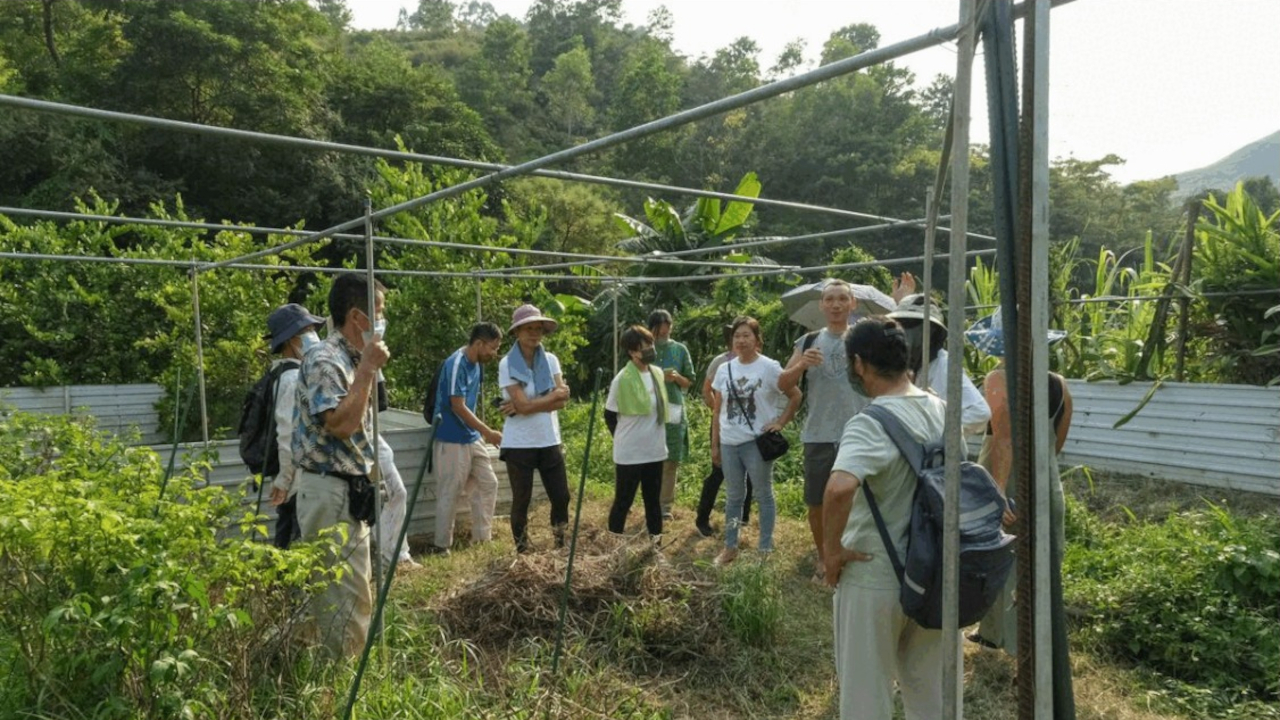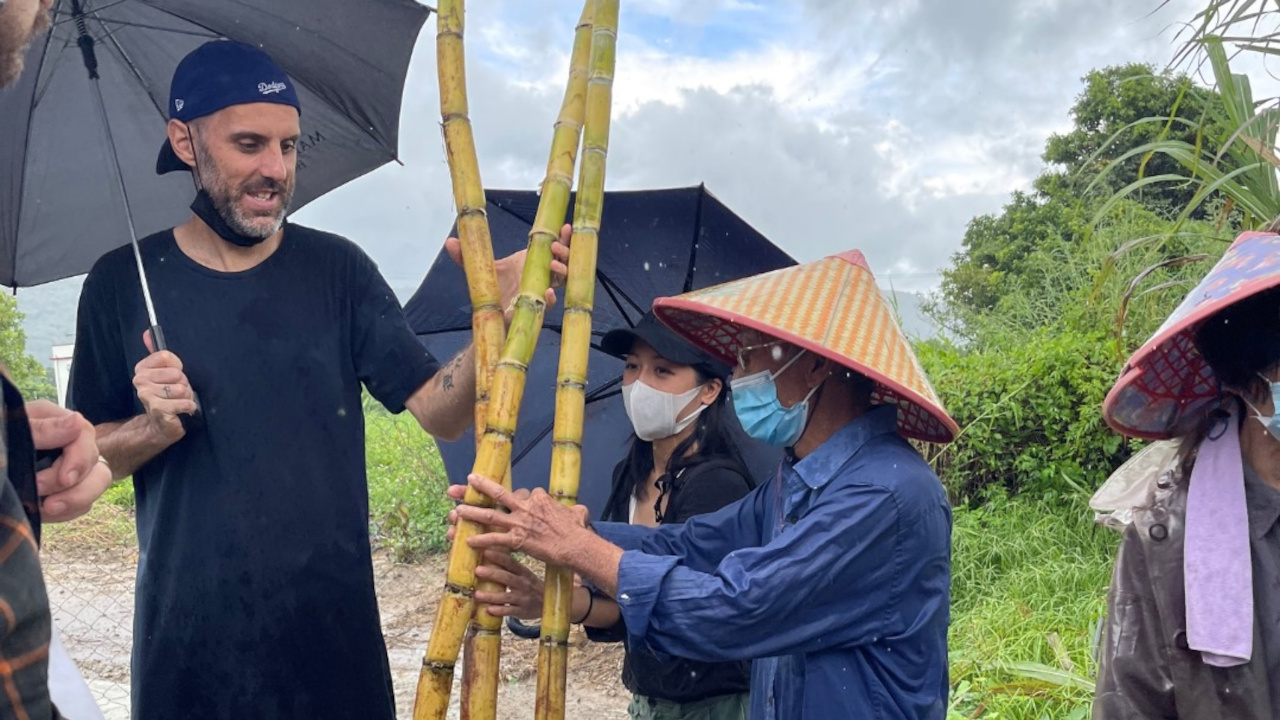In Conversation with Zero Foodprint Asia
It is essential nowadays to consider the carbon footprint of our plate when thinking about our environmental impact. This is not an easy task considering just how many aspects we need to take into account when making a choice: food miles, prioritising plant-based over animal-based products, as well as, increasingly, the farming method used to produce the products we consume. The latter aspect is exactly what the founders of Zero Foodprint Asia (ZFPA,) a branch of Zero Foodprint (ZFP,) have chosen to focus on in their Hong Kong-based NGO.
For a few years now, ZFPA has essentially been adapting the restaurant space focusing on the industry’s role as an intermediary between food producers and consumers. Their primary project, called the 1% Pledge Initiative, aims at creating a shift away from the extractive “conventional” agricultural system to a renewable food system through a simple transfer of a few dollars from restaurants!
To learn more about this exciting project, 50by40 reached out to Joel Tomas, Director of Partnerships at ZFPA, and spoke to him about how this model works and why it can be effective in bringing about a transformation in the current food system.
How did Zero Foodprint start in Asia?
Joel: It all began in 2018 at the Melbourne Food and Wine Festival, where Peggy (Founder, ZFPA) and I learned more about the benefits of promoting regenerative agriculture and its importance as a climate change mitigation and adaptation practice. At the end of 2019, we closed down the restaurant we were then running and transitioned into consultancy, before starting work on ZFPA in 2020.

Not long after, the Hong Kong government introduced a net neutrality scheme, but this wasn’t paired with any viable pathways or solutions for achieving the goals of the scheme. When we realised this, we began developing connections with relevant individuals in academia, the restaurant industry space and experts in regenerative agriculture, eventually giving birth to the 1% Pledge Initiative in Asia. The project aims to bridge the gap between the goal of promoting regenerative farming locally, and the lack of funding to do so.
So Joel, why is there a need to focus on regenerative farming?
Joel: Industrial agriculture, particularly animal agriculture and mono-cropping, include the heavy use of pesticides and herbicides that cause massive damage to our soils, forests, air and groundwater reserves. Thus, the farming methods used have a significant effect on how sustainable the food items are in terms of their overall environmental impact.
Regenerative agriculture aims at introducing practices that are nature-friendly and ultimately deal with improving the overall health and quality of the land. It can be considered a step above organic farming, as it is concerned with both human and environmental health, having the potential to improve biodiversity, build resilience and combat climate variability.
Coming to the programme, how does the 1% Pledge initiative work?
Joel: The 1% Pledge is essentially a crowdfunding method utilising the purchasing power of restaurants and their respective consumers. Restaurants commit to pledge 1% of their profits towards what is called the Restore Fund.
“Our organisation’s main aim is to strengthen the region and enable it to eat good food – both now and in the future. The 1% Pledge initiative is an important part of that.”
The Restore Fund, also operated by ZFPA, acts as an intermediary between restaurants and local organic farmers. The restaurants, in this case, become the funders while the farmers receive the funding which supports them in transitioning towards more regenerative practices.
THE PROCESS
|
So far, in just a year, ZFPA has partnered with 15 restaurants, receiving more than 1.8 million HKD (Hong Kong dollars) towards the Restore Fund, consequently awarding grants to 8 farms – 5 in Hong Kong and 3 in China.

That’s amazing! So, what does the future look like for ZFPA?
Joel: Zero Foodprint Asia is a young but ambitious organisation. We are working steadily towards funding environmentally-friendly farming practices. A major aspect of our plan right now is to scale up both in terms of funders and beneficiaries. We are particularly looking to expand across Asia: Singapore, Malaysia, Indonesia and Thailand, to ensure a higher and quicker impact in funding a shift in more farms.
“There are nearly 15,000 restaurants in Hong Kong, of which just 15 have signed the Pledge. And yet, we’ve already managed to raise over 1.8 million HKD, aiding an estimated transition of around 47 acres of land over the next 12 months!”
The main thing, however, is that we exist out of necessity because Hong Kong heavily relies on imports and industrial agriculture is heavily subsidised, whereas regenerative agriculture is not.
ZFPA is aiding the transition to better practices for both human and planetary health and showing governments around Asia that this can be scaled. We will keep trying to develop the processes and raise funds and hope that our success will act as an example of what authorities should be working on, with them eventually taking over this important task.
There is no doubt that the solution to an issue as complex as transforming global food systems needs to be multi-pronged, requiring a reduction in animal agriculture and a simultaneous increase in plant-based, regenerative agricultural practices. This makes the work of Zero Foodprint Asia extremely important, especially given that industrial animal agriculture is still at a nascent stage in most countries in Asia. And the best parts of our work – the replicability of the initiative in different countries as well as the straightforward way the crowdfunding method works: that is – the impact of just 1%!
You can learn more about ZFPA and their incredible work here.
